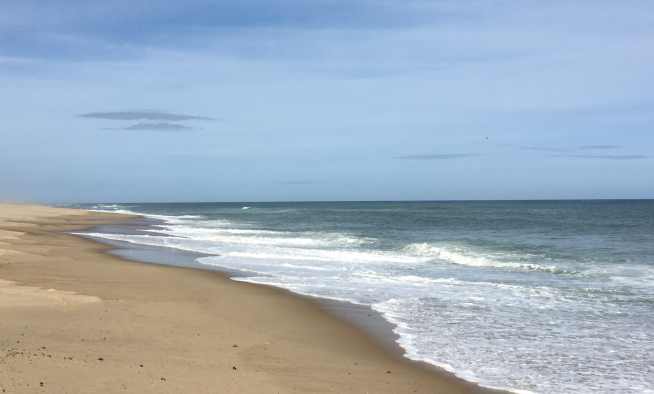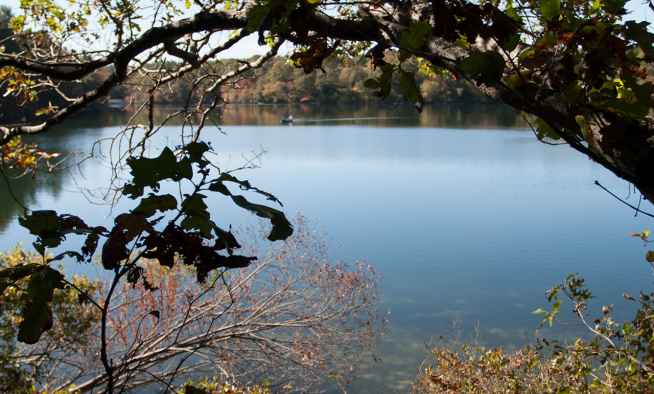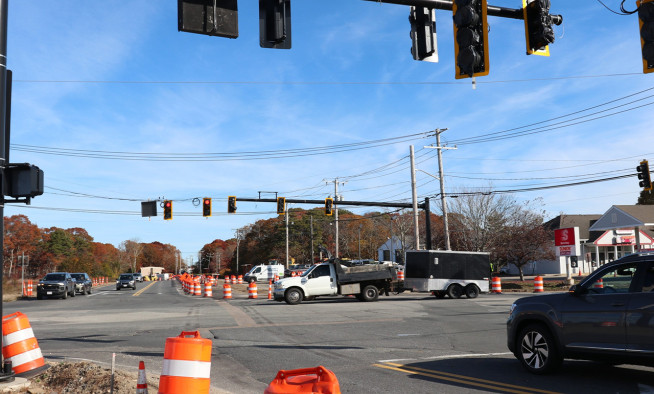The Freshwater Initiative: Examining and categorizing management strategies across the region
Divers pull invasive weeds from Barnstable's Mystic Lake. Solarbee circulators skim the surface of Skinequit Pond in Harwich, targeting algae blooms that stem from elevated phosphorous levels. An alum treatment in Eastham's Great Pond increased water clarity and reduced cyanobacteria blooms. Yarmouth has successfully used herbicide and algaecide to control the growth of nuisance and non-native aquatic plants and algae in Perera Pond.
Stormwater runoff, development, erosion, invasive species, and septic system discharge impact the health of Cape Cod's 890 ponds. Across the region, management strategies of different types and scales are being implemented to improve water quality and overall pond health.
Newly updated application provides a window into region-wide pond management strategies
People interested in learning more about these management strategies may visit the newly updated Pond Restoration Projects Viewer to gain insight into ponds across the Cape.
Cape Cod Commission staff updated the interactive, map-based Pond Restoration Projects Viewer application to improve its functionality and modernize its look and feel. Local municipalities provided updated information on various management strategies that viewers can explore by town or type. A click of the mouse brings up pond reports and related documents, information on implementation, partnerships, outcomes, and ways the strategy presented addressed specific problems.
Protecting our ponds is an effort that extends beyond pond boundaries. The viewer showcases in-pond strategies and those spanning the watershed, as they could effectively prevent future problems.
Visit the Pond Restoration Projects Viewer to learn about pond-specific challenges, strategies, results, and lessons learned to help inform further action across Cape Cod. Updates and additional projects will be added if information becomes available.
The Pond Restoration Projects Viewer offers municipal staff, pond groups, and interested citizens a region-wide look at efforts to improve freshwater quality. Combined with a freshwater strategies database that will be provided as part of the Freshwater Initiative, water resource managers will have access to data and information on traditional and non-traditional pond protection, management, and rehabilitation strategies.
Technical advisors supporting strategies database development
The Commission is consulting a team of technical advisors comprised of academics, consultants, government officials, and experts with experience in planning, regulating, researching, and implementing pond strategies on the Cape and beyond to ensure the database includes the best available information.
When complete, the pond-specific strategies database will include a range of technologies, regulatory and voluntary options, and management approaches for protecting and restoring pond water quality.
Strategies at all scales - in-pond, pond shore, and watershed – will be included in hopes of creating a database that town staff, pond associations, and citizens can access to discover a holistic set of best practices for pond management. To date, the technical advisors have highlighted the importance of considering strategies that tie back to climate resilience, ecological integrity, and human uses, work in concert with one another over the long term, while focusing on what can be controlled locally.
Learn more about the Cape Cod Freshwater Initiative by visiting www.capecodcommisson.org/freshwater
Related Posts




